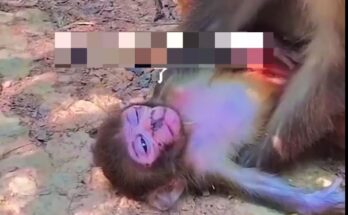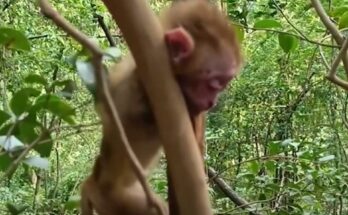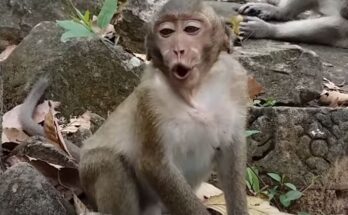In the wild, baby monkeys face many dangers, including predators, habitat loss, and harsh weather. However, one of the greatest threats to their survival is disease. Without immediate medical intervention, illnesses such as pneumonia, dehydration, and viral infections can quickly become fatal. Fortunately, dedicated wildlife rescuers and veterinarians work tirelessly to save these vulnerable primates through emergency rescue efforts.
When a sick baby monkey is found, the first step is often stabilization. Many rescued infants are weak, malnourished, or suffering from severe dehydration. Caregivers provide fluids, warmth, and emergency nutrition to improve their chances of survival. In some cases, oxygen therapy or antibiotics may be necessary to treat respiratory infections or other serious conditions.
Specialized rescue centers play a crucial role in rehabilitating sick baby monkeys. These facilities are equipped with medical supplies, incubators, and experienced veterinarians who monitor the infants around the clock. Sick or injured monkeys often require bottle feeding, wound care, and socialization to ensure they recover both physically and emotionally.
Beyond immediate medical treatment, long-term care is essential for these young primates. Many baby monkeys lose their mothers due to poaching, deforestation, or disease outbreaks. Without maternal care, they must learn essential survival skills from human caregivers or surrogate monkey groups before they can be released back into the wild.
Rescue organizations rely on public support and conservation efforts to continue their life-saving work. Donations, awareness campaigns, and stricter laws against illegal wildlife trade all help protect these vulnerable animals. Through dedicated efforts, rescuers give baby monkeys a second chance at life, ensuring they grow strong and eventually return to their natural habitat, where they belong.


